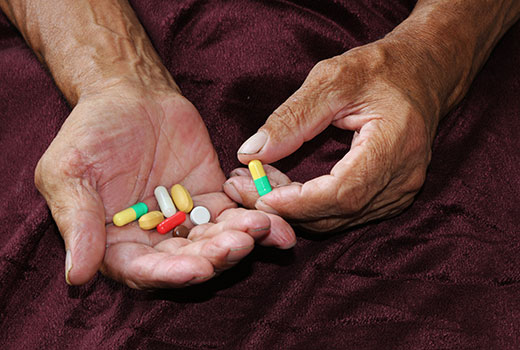I was recently at a medical conference where one of the presenters discussed medication interactions. It was an eye-opening talk. Furthermore, it gave me the shudders when I was reminded of some of the frightening things that can occur when medications are mixed (by prescribers) without thorough forethought.
For example, many drugs interact with the blood-thinner Warfarin (aka Coumadin) to cause increased bleeding. Likewise, vast numbers of medications have the potential, when combined with others, to cause potentially dangerous cardiac arrhythmias.
Americans are taking more medications than ever before. I commonly see patients, especially seniors, who are taking 10 to 15 medications (or more) every day. It is very difficult to predict the complex chemical interactions that could occur between that many different, biologically active molecules.
However, enter the heroic pharmacist and his or her trusty computer program! I commonly call our hospital pharmacist to consult on medication dosing, side effects, toxicity or interactions. (I’m not proud — when someone else knows a lot more about a topic than I do, I’m happy to use their expertise to keep my patients safe.)
Fortunately, you have access to pharmacists as well. Whenever you have a prescription to be filled, the retail pharmacist has systems that can evaluate whether your new medications are compatible with your existing medications. This is a Herculean task, as new drugs are constantly entering the market.
In light of the problem of interactions, I encourage everyone to do a few things for their own well-being.
First, as much as possible, use the same physician all the time.
Second, question every new medication when someone offers to prescribe it. Ask if you really need it. And ask whether or not it will potentially conflict with what you already take.
Third, as much as possible, use the same pharmacy (or at least a pharmacy in the same chain of pharmacies) so that your medication history can be reviewed when you fill a new prescription.
Fourth, always keep a list of your medications on your smartphone or on a piece of paper in your purse or wallet. In case of injury or illness, a medication list can be very helpful to those treating you. Physicians and nurses sometimes have access to your history by calling pharmacies, but not all of them are open 24/7.
Medications make life so much better! Just make sure that your latest prescription will help rather than hurt.

